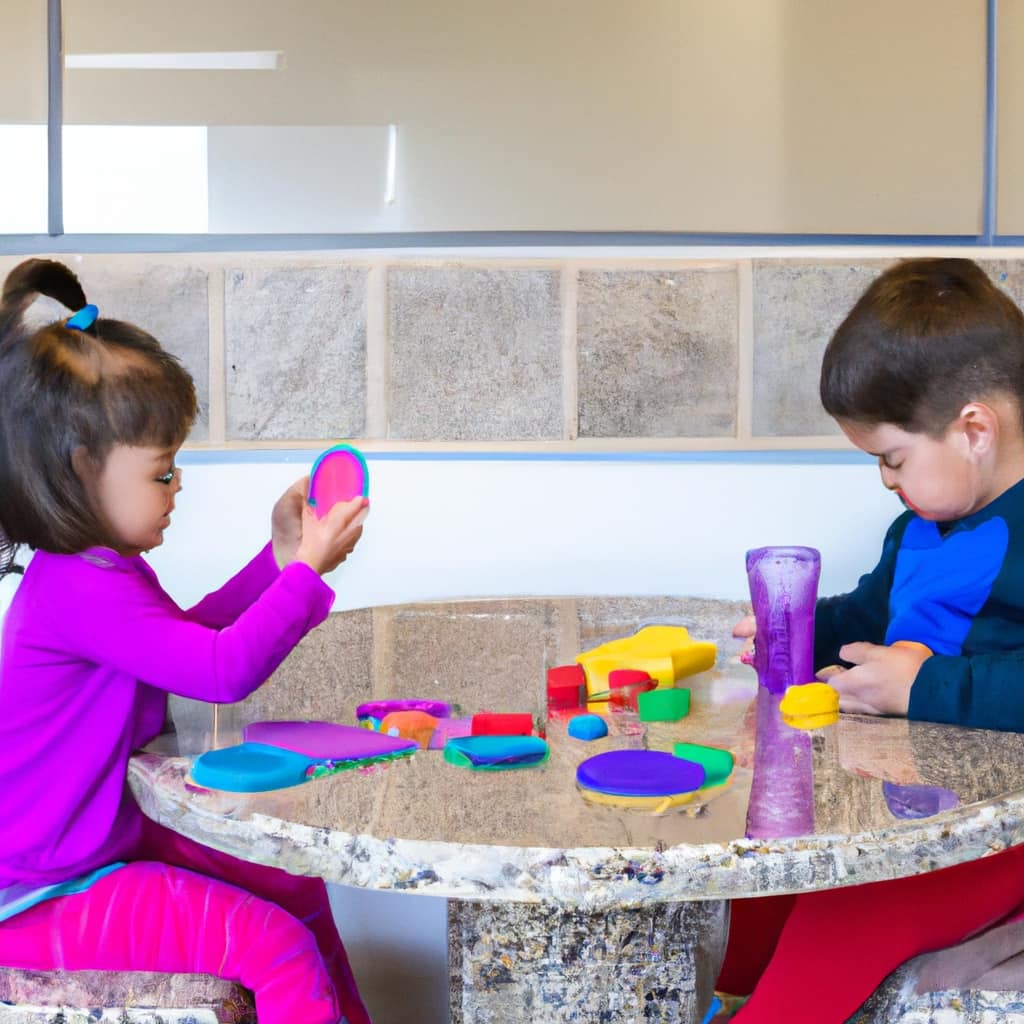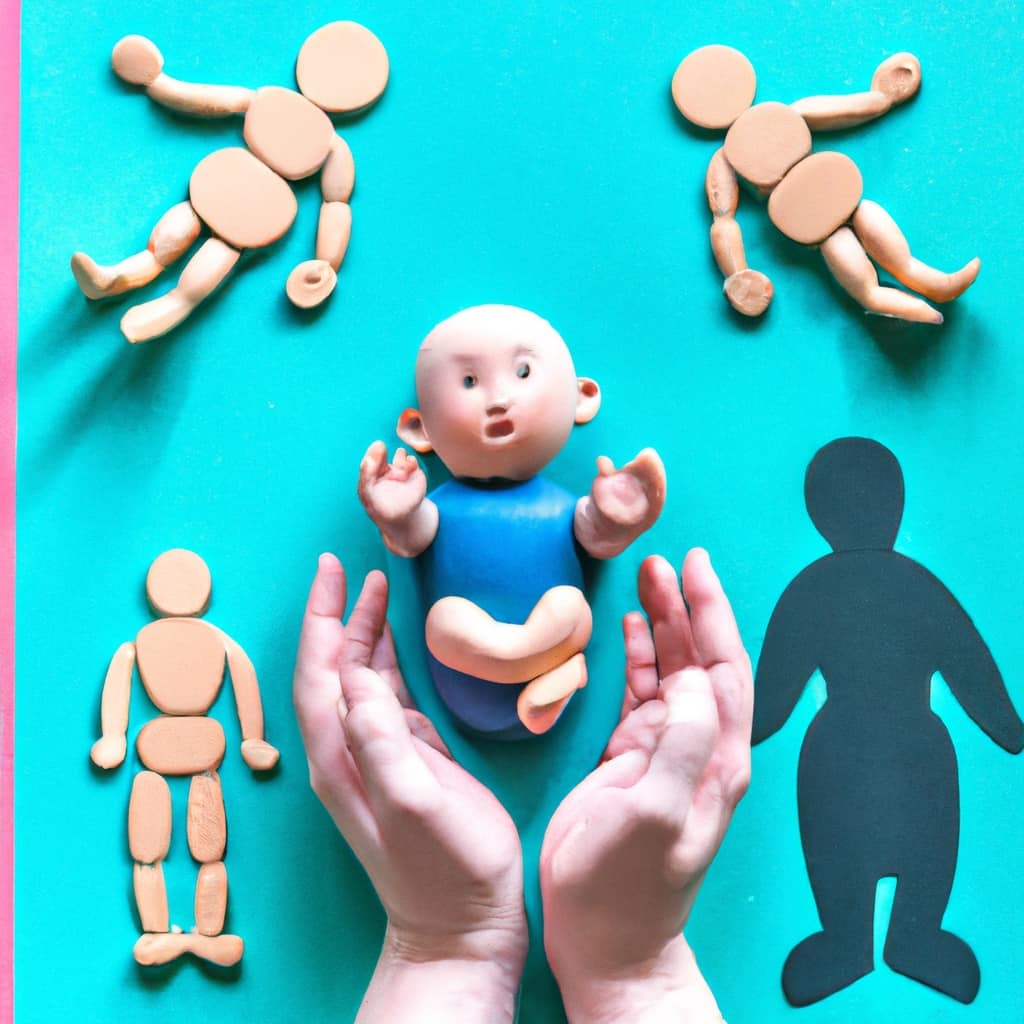Have you ever wondered why little children seem to be so self-centered?
Well, let me tell you about egocentrism, a fascinating aspect of cognitive development in children. It’s the belief that their own perspective is the only valid one, resulting in a self-centered view of the world.
As a child psychologist, I’ve seen how this can hinder emotional intelligence and affect peer relationships.
But fear not! In this article, we’ll explore strategies to help children overcome egocentrism, develop empathy, and foster positive relationships.
Let’s dive in!
Key Takeaways
- Egocentrism is a key characteristic of the preoperational stage of cognitive development, typically occurring between the ages of 2 and 7.
- Egocentric thinking is characterized by a child’s inability to take on the perspective of others, resulting in a self-centered view of the world.
- Egocentrism can hinder the development of emotional intelligence and impact peer relationships, leading to conflicts and misunderstandings.
- Strategies to overcome egocentrism include modeling empathetic behavior, promoting conversations that consider others’ perspectives, engaging in perspective-taking exercises, and providing opportunities for practicing empathy.
The Definition and Age Range of Egocentrism
I believe that egocentrism is defined as the belief that a child’s own perspective is the only valid one, and it typically occurs between the ages of 2 and 7. During this stage, children struggle to understand that others may have different thoughts, feelings, and viewpoints.

The effects of egocentrism on cognitive development are significant. It hinders a child’s ability to take on the perspective of others, resulting in a self-centered view of the world. Egocentric thinking also plays a role in moral reasoning, as children in this stage may struggle to consider the feelings and needs of others.
Overcoming egocentrism involves gradually developing the ability to take others’ perspectives into consideration and empathize with them. By fostering empathy and perspective-taking skills, we can help children navigate beyond egocentric thinking and form meaningful connections with others.
Characteristics and Behaviors of Egocentric Thinking
Preschoolers often struggle with seeing things from other people’s perspectives, which can result in self-centered behavior. Understanding perspective taking and developing empathy skills are crucial for their social and emotional development.
Egocentric thinking is characterized by a child’s inability to take on the perspective of others, leading to a self-centered view of the world. This can manifest in behaviors such as not sharing toys or not considering the feelings of others.
Overcoming egocentrism involves gradually developing the ability to take others’ perspectives into consideration and empathize with them. Strategies to support this development include modeling empathetic behavior, encouraging conversations that promote considering others’ perspectives, engaging in perspective-taking exercises, and providing opportunities for children to practice empathy.
The Impact of Egocentrism on Social Skills
Developing the ability to consider others’ perspectives and empathize with them is crucial for fostering positive and healthy relationships. When children are trapped in egocentrism, it can have negative effects on their social skills, particularly in their peer relationships. Here are some ways egocentrism impacts social skills:

-
Lack of understanding: Children who are egocentric struggle to understand and empathize with the thoughts and feelings of others, which can lead to misunderstandings and conflicts.
-
Self-centered behavior: Egocentrism often manifests as a self-centered view of the world, where children may not share toys or consider the feelings of others.
-
Limited perspective-taking: Preschoolers, in particular, may struggle to see things from other people’s perspectives due to their egocentric thinking.
-
Hindering emotional intelligence: Egocentrism can hinder the development of emotional intelligence, making it difficult for children to understand and regulate their own emotions as well as those of others.
-
Impact on peer relationships: Egocentrism can strain peer relationships, as children may struggle to connect and interact with others in a considerate and empathetic manner.
Understanding these negative effects can help parents and educators recognize the importance of addressing and overcoming egocentrism. By teaching and providing opportunities for perspective-taking, modeling empathetic behavior, and encouraging conversations that promote considering others’ perspectives, we can support children in developing empathy and social skills that will contribute to positive and healthy peer relationships.

Strategies to Overcome Egocentrism
Modeling empathetic behavior and engaging in perspective-taking exercises are effective strategies to help overcome egocentrism.
As a parent, I understand the importance of emotional intelligence in my child’s development. By demonstrating empathy and considering others’ perspectives in my own actions, I can provide a strong role model for my child. This allows them to observe and learn how to navigate social interactions with understanding and compassion.
Additionally, engaging in perspective-taking exercises, such as discussing different viewpoints and encouraging empathy in daily conversations, can further support my child’s growth. By actively promoting empathy and perspective-taking, I can help my child overcome egocentrism and develop important social skills.
Through my guidance and opportunities for practice, I can lay the foundation for their ability to understand and connect with others on a deeper level.
The Role of Modeling and Conversations in Developing Empathy
As a parent, I can foster empathy in my child by actively engaging in conversations that promote considering others’ feelings and viewpoints. Here are some ways I can do this:
-
Role of observation: I can encourage my child to observe and notice how others are feeling in different situations. This helps them develop an understanding of others’ emotions and perspectives.

-
Importance of active listening: By actively listening to my child and validating their feelings, I can teach them the importance of listening to others. This helps them understand that everyone’s thoughts and emotions are valid and worthy of consideration.
-
Modeling empathy: I can model empathetic behavior by showing understanding and compassion towards others. This sets a positive example for my child to follow.
-
Encouraging perspective-taking: I can ask my child questions that encourage them to consider how someone else might feel or think in a given situation. This helps them develop the ability to see things from different viewpoints.
-
Practicing empathy: I can provide opportunities for my child to practice empathy, such as volunteering or helping others in need. This allows them to experience firsthand the impact of considering others’ feelings and perspectives.
Engaging in Perspective-Taking Exercises
Engaging in perspective-taking exercises helps me develop empathy and understand different viewpoints. Role playing activities and empathy building exercises are effective ways to enhance perspective-taking skills.
Research shows that these exercises allow individuals to step into someone else’s shoes and gain a deeper understanding of their thoughts and feelings. By actively engaging in role plays, I can simulate different scenarios and explore diverse perspectives. This helps me develop a sense of compassion and empathy towards others.

Additionally, participating in empathy building exercises, such as guided discussions or storytelling, can further enhance my ability to consider others’ viewpoints. These exercises provide opportunities for reflection and growth, allowing me to overcome egocentrism and foster positive and meaningful relationships.
The Importance of Overcoming Egocentrism for Social Development
Developing empathy and considering others’ viewpoints is crucial for fostering positive and healthy relationships. When it comes to overcoming egocentrism, empathy plays a vital role. Here are some key points to consider:
- Empathy helps us understand and connect with others on a deeper level, allowing us to see beyond our own perspectives.
- Perspective-taking exercises are effective in breaking down egocentric barriers and promoting empathy.
- These exercises involve stepping into someone else’s shoes and imagining their thoughts, feelings, and experiences.
- By practicing perspective-taking, we can develop a broader understanding of the world and cultivate compassion for others.
- The benefits of perspective-taking exercises include improved communication skills, enhanced emotional intelligence, and stronger relationships.
Frequently Asked Questions
How Does Egocentrism Affect a Child’s Cognitive Development?
Egocentrism affects a child’s cognitive development by limiting their ability to consider others’ perspectives. This hinders social interactions and empathy. Overcoming egocentrism is crucial for developing perspective-taking skills and healthy relationships.
What Are Some Common Misconceptions About Egocentrism in Children?
Some common misconceptions about egocentrism in children include thinking that they are being intentionally selfish or manipulative. Understanding the egocentric perspective helps us recognize that it is a normal part of cognitive development.
How Does Egocentrism Impact a Child’s Ability to Problem Solve?
Egocentrism can hinder a child’s problem-solving abilities. It limits their perspective and makes it difficult to consider alternative solutions. To support problem-solving in egocentric children, modeling empathetic behavior and engaging in perspective-taking exercises can be effective strategies.
Can Egocentrism Be Completely Eliminated, or Does It Always Linger to Some Extent?
Eliminating egocentrism completely may be challenging, as it is a normal part of cognitive development. However, with guidance and practice, children can gradually overcome it and develop empathy. The long-term effects of egocentrism can be mitigated through fostering perspective-taking and social skills.

Are There Any Long-Term Effects of Egocentrism on a Child’s Social and Emotional Well-Being?
Long-term consequences of egocentrism on a child’s social and emotional well-being can include difficulty communicating effectively, understanding social cues, and forming cooperative relationships. Overcoming egocentrism is crucial for fostering healthy connections with others.
Conclusion
In conclusion, overcoming egocentrism in children is crucial for their social development. By understanding and considering others’ perspectives, children can develop empathy and build positive relationships.
Modeling empathetic behavior, encouraging conversations that promote perspective-taking, and engaging in exercises can help children overcome egocentric thinking. As the saying goes, ‘Put yourself in someone else’s shoes.’ By doing so, children can gain a deeper understanding of others’ feelings and viewpoints, leading to effective communication, improved social skills, and cooperative play.
Let’s support children in their journey towards empathy and a more inclusive worldview.










